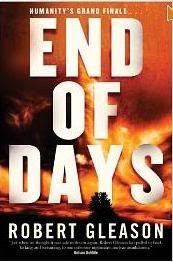
There is a very simple term to describe a book like this: A "tour de force".
What would be the best way to describe a book, which in some ways is similar to the Author's, The Stand? A long book, a very long cast of characters (the cast includes all the residents of a small town in Maine, 2,000+ plus a couple of "dogs of note"), a decent plot, but most importantly the relationships that are put in strain when all these people are put (or forced to live) for a few days "Under the Dome." At the outset, it's also important to discuss a couple of really large "elephants in the room", related to this book. The first of these is the length, or size of this book. Now, I personally, have no problem with books exceeding 1,000 pages, but it must be said, a lot of readers are rather not interested in tackling such beasts. Would it interest you to know that I finished the last 250 pages of this book in one afternoon's sitting? That's like reading one novel in one day!
The second unmentioned thing of course it that this is a Stephen King book, so therefore, it must be scary, or gory, attributes that accompany most, if not all of his stories. It's hard for me to answer this one objectively, because of my personal experience with this author, and because of my personal belief that every author (especially a good author) is an evolving creature, that is, he or she is not born a GREAT writer, but even if he is a Great writer, can change over time, can alter his craft, can transform his craft to match the times, the era his writing addresses or to reflect the changes in his own personality. That's not to say that many great writers have not written garbage in their later years, or that many others have not produced brilliance for years on end. But to expect the same from an author every time something of his gets published is a big mistake. I enjoy this variability, and this is why I found some comments when this book came out baffling: "I won't read this book, because like all Stephen King books, it's going to be scary." That makes no sense. And so what if it's gory? Weren't some of Stephen's most gory novels, also the most psychologically taught? And that's assuming that I liked (or you, the reader liked) all of his other books. (For the record, I didn't -- but that's a different subject.) With all of that said, let's move to the story.
The story begins, innocently enough when Dale Barbara, a short order cook, formerly a lieutenant in the US Army is trying to leave "Chester's Mill", Maine. While this a fictional town, populated by fictional characters, as always, the things that happen to them have some roots in reality. Dale, or "Barbie" as his friends call him, is someone who served in Iraq and was a vital cog in the war effort there. But he has some difficult memories from his time while enlisted, and it is those memories that have made him a drifter. In this book, Barbie becomes the town's scapegoat, but at the same time maybe it's hero and savior? He starts of as a hunted man because of a fight outside the diner where he worked. This because he supposedly "raped" one of the waitresses, the ex-girlfriend of someone fairly important to the town, as we will find out.
Juxtaposed with Dale is the town's main Villain, James "Big Jim" Rennie, or is he the hero and savior of the town. Big Jim, is the town's Second Selectman, and is therefore elected to public office by the people of Chester's Mills. He is also a Used Car Salesman. As the Second selectman, he should not be that powerful, but he really is the power behind everything in Chester's Mills. From the banks, to the pharmacies, to the Funeral Home, to the Hospital, to the Christian Radio Station with the most powerful transmitter in the whole of New England. And it is at this Radio Station that one of this town's big secrets lies. Because you see, "Big Jim" is involved in some shady business dealings, and he uses patsies, that is, he uses others to cover his tracks.
On October 21, the day that is to be forever called "Dome Day", a powerful "force field" of some kind descents around the town practically following the exact outlines of the town limits. It's almost like taking a glass cup and trapping a fly or other bug under it on a flat surface. Only those trapped here are human beings. The top of the Dome extends high into the Atmosphere so that birds, insects and of course airplanes can not get in or out. As you imagine, there are plenty of "casualties" when "the Dome" first blinks into existence, whether human, or animal, and these, the author takes some time describing, including their implications. This exposition is classic Stephen King, but overall, considering what I said at the beginning is not that gory. And it really helps build the tension and draw you into the story.
Immediately following the appearance of "the Dome" comes the realization of its existence and what that implies. This again takes some time to work through, and involves some more mayhem, especially since people don't know how the "Dome" limits them (physically, but also socially). The town's Police Chief dies at this time when it's discovered that electronic devices (such as heart pacemakers) do not fare very well near the "Dome". This leaves Barbie with one less "ally" in town, since he is now trapped in Chester's Mill for the foreseeable future. One of the people who beat him, was Big Jim's son, Junior Rennie, and as the town convulses in the aftershocks of "Dome Day" it becomes apparent that Barbie has become public enemy number one.
What follows, apart from a great cast of characters, a great whodunit, because we're really interested in knowing the origin of "The Dome", and a simple power struggle between two people for the control of a town, is a great commentary on the last 10 to 12 years of American politics and sociology. Both the things that unite us and the things that divide us. There are references to the current President, references to the Iraq War, and references to the "Culture War". Yet, none of that is as important as what shines through and what becomes the book's ultimate message. Man's struggle to overcome his circumstances, however overpowering those might be at any one time, and survive, despite what the odds might be. In the scheme of things, heroes, and goats, fight for what they believe is theirs, fight for theirs' and their family's stake and survival and achieve their 15 minutes of fame. They do so, because the whole world gathers outside the "Dome" to witness the events evolving in this little town in Maine.
I would like to place this book among some of the "great" books I have read in the past. It's strength does not lie in a great, "over-arching" idea, or a great, world-changing character. The strength of this novel lies in the myriads of day to day interactions of the thousands of residents of Chester's Mills, Maine, leaving us all to wonder how would you handle "The Apocalypse?"
For me, an easy 5-star review:


